Last Updated on July 17, 2024 by Angela Vaz
Something that not many people know about me is that I’ve been struggling with acne since I was 9 – so that’s been 22 years living with this soul-crushing skin problem.
My acne is hormonal – as with most acne.
After consulting so many dermatologists, spending loads on topical ointments and facewashes, and cutting out so many foods, I can honestly say I have the right to discuss this.
I’m still a work in progress, but I can see myself getting there. I am super excited to share these habits with you because they actually work.
In this post, I will discuss a few habits you can incorporate every day to help you achieve clear, glowing skin.
I mean, we all want that – don’t we?
Let’s begin, shall we?
This post contains affiliate links, meaning I may make a commission at no extra cost to you if you decide to click on a link and purchase something. Click here to read the full disclaimer.
1. Reduce your stress levels
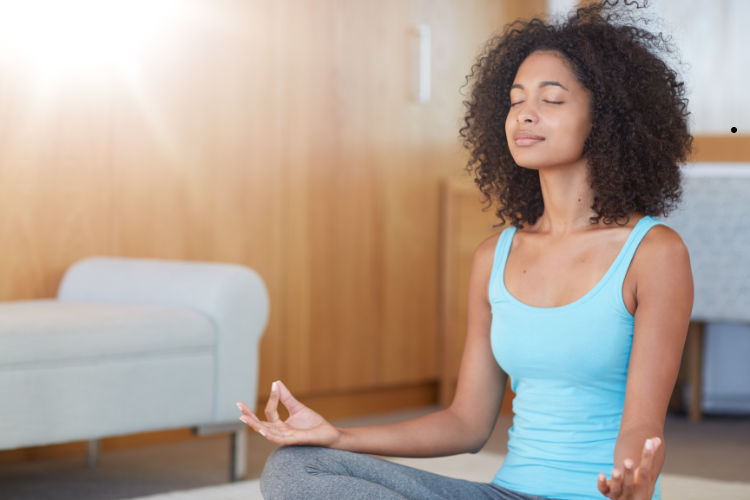
My friend is a bridal make-up artist.
And her clients always have major breakouts on the big day – it’s always due to stress.
Stress is one of acne’s biggest contributing factors.
Your skin is the largest organ in your body, and it reflects what goes on inside your body.
When your body experiences stress, it triggers the production of tiny proteins that increase inflammation in the body, resulting in more acne.
It may not seem like something significant, but trust me if you can control your stress/anxiety levels daily, you can actually reduce your acne and get better skin.
Here are a few ways you can reduce your stress levels:
- Make a daily to-do list of your tasks to help keep you organized.
- Journal for 5 minutes daily; it will help you voice your fears and give you a fresh perspective.
- Meditate, even if it’s for 5-10 minutes a day. Use a guided meditation app like Headspace; it’s straightforward to use.
- Get sufficient sleep: Note how much sleep you require (7-9 hours) and try to get uninterrupted sleep everyday to keep your stress levels low.
Stress is something we can work on and reduce and will make such a big difference to your skin.
2. Maintain a good diet/drink lots of water
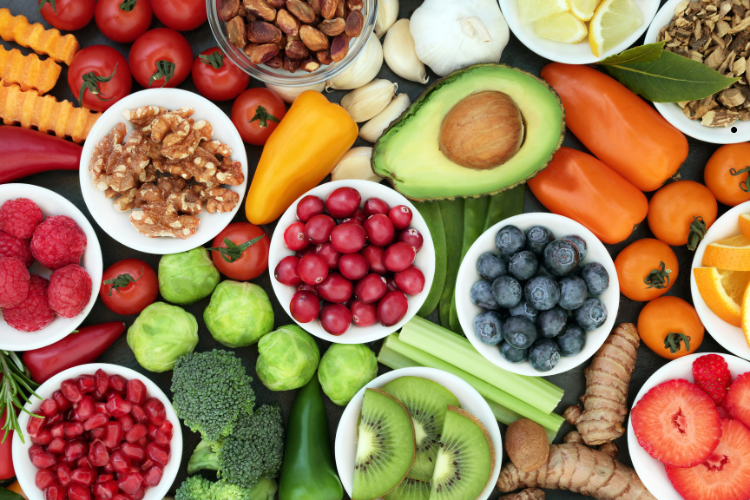
For a lot of people, certain foods just don’t agree with them.
For me, it’s a lot of foods like soy, fish, shelled fish, red meat (of any kind), ginger, garlic, alcohol, and so on.
It’s taken me years to figure out what breaks me out and gives me digestive issues. My body is very sensitive.
It’s also taken me a long time to accept that I cannot enjoy many foods I actually want to eat.
But everyone’s body is different.
The best way to determine what works for you is to maintain a food diary. Note what you’re eating regularly and record your skin.
Note what triggers your skin to break out and see if you can cut out those foods.
Introduce new foods very slowly – this is the best way to note what works and what doesn’t.
Additionally, drink a lot of water and try to eat a balanced diet of fruits, vegetables, carbs, proteins, and fats.
No food is good or bad specifically, but it is important to maintain a balance.
3. Wear sunscreen
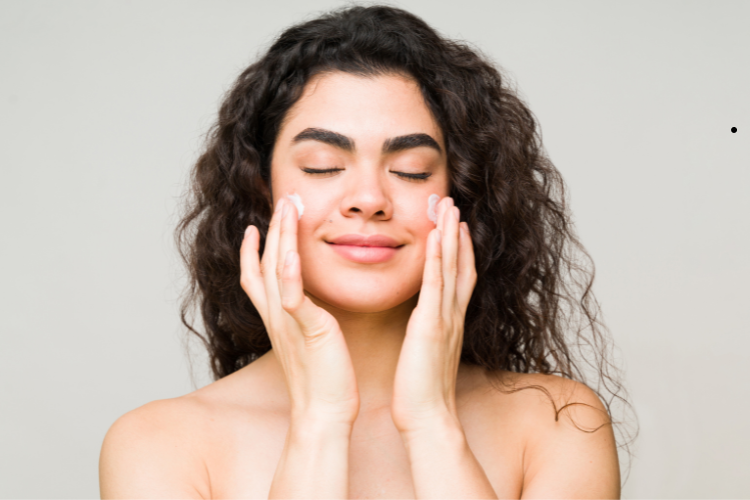
I know sunscreen is finally making its rounds, and people are actually paying attention to it.
But you must never miss a day of wearing sunscreen.
Wear it even if you’re indoors.
If you have acne or dark spots, you should wear sunscreen. This will prevent your hyperpigmentation from getting worse and help it fade more quickly.
Additionally, because sunscreen provides a barrier against UV rays, it helps minimize inflammation, reducing acne.
Look for oil-free, non-comedogenic formulas that won’t clog pores or exacerbate acne. Additionally, try to choose sunscreens labeled as “broad-spectrum” because they protect against UVA and UVB rays.
I love this sunscreen by La Roche Posay – all their products are amazing for acne girlies.
4. Move your body and try to stay fit
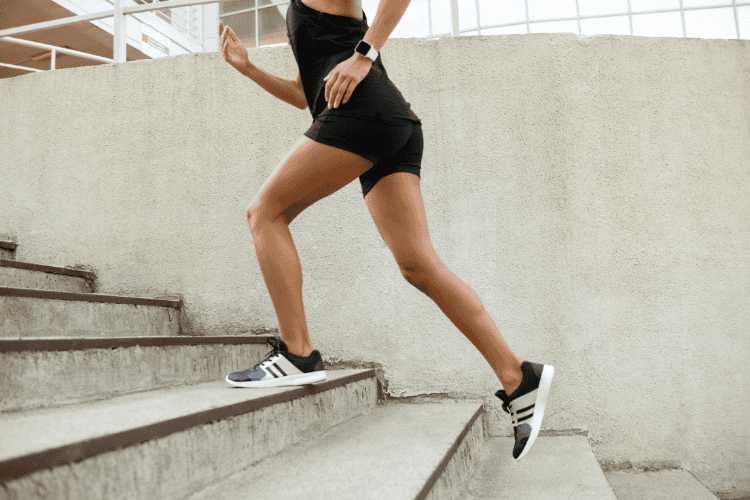
I always believed that if I maintained a good diet, I needn’t have to exercise.
But I was wrong.
Exercise is necessary, you need to sweat in order to get healthy, toned, glowing skin.
Exercise actually has multiple positive effects on your skin:
- Increased Blood Flow: When you exercise, your heart rate increases, which improves blood circulation throughout your body, including your skin. Better blood flow means more oxygen and nutrients are delivered to your skin cells, promoting a healthy complexion and aiding in cell regeneration.
- Sweat: Sweating during exercise helps to flush out toxins and impurities from your skin. It opens up your pores and expels dirt, oil, and other debris that can clog them and lead to acne or other skin issues. Please remember to cleanse your skin after exercising to remove sweat and prevent it from mixing with bacteria and causing breakouts.
- Stress Reduction: Exercise reduces stress levels by releasing endorphins, chemicals in your brain that act as natural mood lifters. Lower stress levels can help prevent stress-related skin issues such as acne breakouts, eczema flare-ups, and psoriasis.
- Hormonal Balance: Regular exercise can help regulate hormone levels in your body, contributing to healthier skin. Hormonal imbalances, such as those that occur during puberty or menstruation, can lead to acne breakouts and other skin problems. Exercise helps maintain hormonal balance, reducing the likelihood of such issues.
- Collagen Production: Exercise stimulates the production of collagen, a protein that helps keep your skin firm, elastic, and youthful-looking. As you age, collagen production naturally decreases, leading to wrinkles and sagging skin. Regular exercise can help slow down this process and promote collagen synthesis, leading to firmer, more resilient skin.
- Improved Sleep: Regular exercise can improve the quality of your sleep, which is essential for healthy skin. During sleep, your body repairs and rejuvenates itself, including your skin cells. Adequate sleep helps prevent dark under-eye circles, dullness, and premature aging of the skin.
Start with 5-10 minutes a day and slowly work your way up to 45 minutes to an hour.
I enjoy home workouts that I can do by watching YouTube. I’m enjoying Grow with Jo, and I love her simple routines.
5. Follow a stupid-simple skin routine
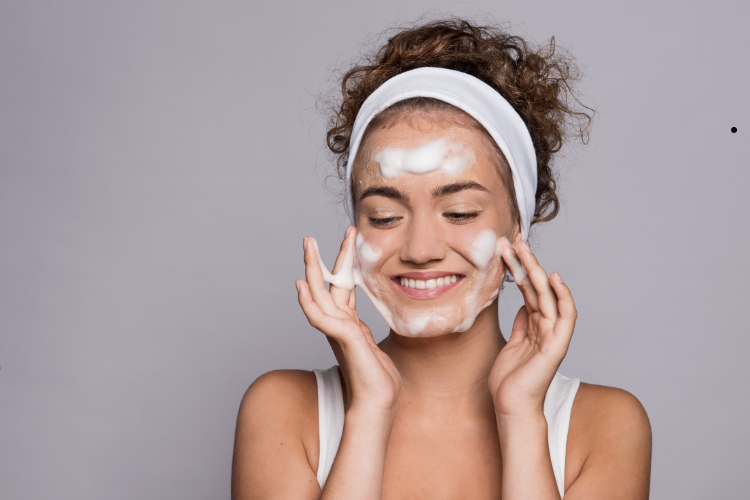
Less is more.
It is better to use 3 products daily than 10 for a few days and stop completely.
Try building a sustainable habit.
Target your skin problem specifically – don’t try to do everything under the sun.
This is my skincare routine that works for me:
- Morning: Gentle cleanser, glycolic acid (helps with fading hyperpigmentation and smoothes skin), CORSX Snail Mucin Repair Cream, sunscreen
- Evening: Cleanser followed by Salicylic acid/Niacinamide (I alternate between both)
If acne is your biggest issue, use 2-3 products explicitly targeting it. Remember to always finish up with sunscreen.
6. Use makeup cautiously
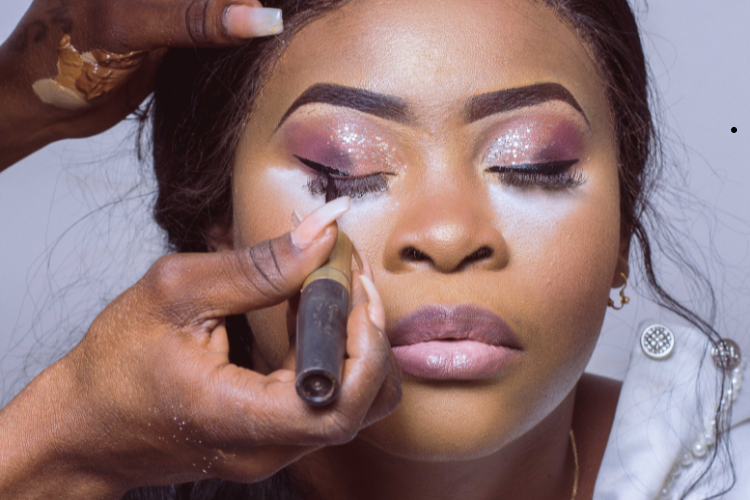
Be particular when buying makeup products – look for oil-free, non-comedogenic makeup to avoid exacerbating acne.
And try to keep your makeup routine very simple.
Ensure you wash your blending sponge and brushes after every use and replace your blending sponge every month to avoid bacteria buildup.
Again, less is more.
You don’t want to clog your pores daily; wear makeup only when you want to.
I used to wear full-coverage makeup, but I find it looks artificial. My skin texture gives away the idea that I have a problem with my skin.
So, now, I try to maintain a somewhat even tone (I prefer nude makeup), and that’s enough for me.
I cover foundations that work for oily skin in this post.
7. Be consistent
This whole post is about daily habits.
Aim for consistency.
Try to incorporate these habits one by one as and when you can.
Remember to build small habits so that they’re sustainable.
And even though they seem small, they will actually lead you to good, clear, and glowing skin in time.
You have to heal your body from the inside out actually to get good skin.
I wish you luck!
If you enjoyed this post, make sure you subscribe to get my personally written newsletters.
Here are a few more posts you may like:

![7 Daily Habits to Get Clear, Glowing Skin [Acne Guide]](https://www.mindspacecafe.com/wp-content/uploads/2024/05/k-5.png)


